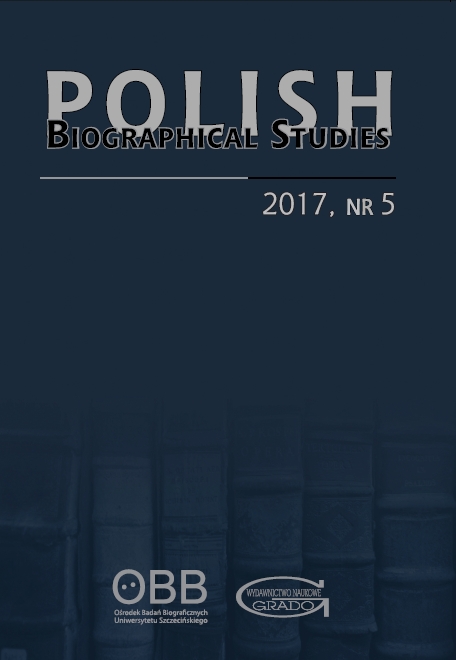Żuławski – asocjacje
Żuławski – associations
Author(s): Maciej KowalskiSubject(s): Cultural history, Sociology of Culture, Film / Cinema / Cinematography
Published by: Wydawnictwo Naukowe GRADO
Keywords: Andrzej Żuławski; film; cultural anthropology; biography
Summary/Abstract: In my short essay, I wanted to address the issues of Andrzej Żuławski’s „Shamanka”. Especially in the context of critical voices that consider this work to be iconoclastic. I was especially interested in the issue of transgression, understood as the ability to defend against the system. The essence of taboo collapse, also seen in other artist-directors, exploits the potential of primordial violence, coming closer to relations that are not conditioned by economics or matter, but purely Nature’s laws, based on predators and victims, whose sources of behavior and characteristics pass. To the next stages of human evolution, only in fuzzy clarity. Because of new environment conditions, caused by culture, then civilization. Hence the great metaphorical values of the heroes of Żuławski’s production, and above all the character of „Italians”. The film’s content is her relationship with the anthropologist Michal, fascinated by archaic epochs, but with a completely different approach to them. Similar transgressive meaning, though on a different personal background, can be seen in Italian director Paolo Pasolini’s reminiscence, which may be recalled during the screening. Equally controversial was his last venture – Salo 120 days of Sodomy – a free adaptation of the novel of the Marquis de Sade. I set up both films to signal the polemic approach of both directors to postmodern societies.
Journal: Polish Biographical Studies
- Issue Year: 5/2017
- Issue No: 1
- Page Range: 169-182
- Page Count: 14
- Language: Polish

